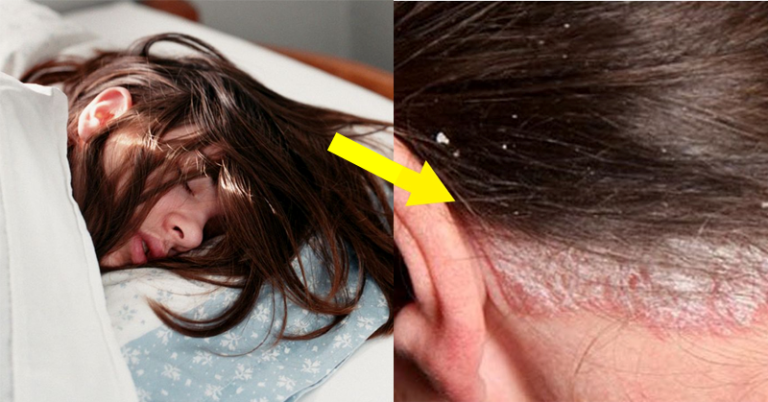We all have heard from our elders that we should not sleep with wet hair to avoid catching a cold. However, sleeping with wet hair doesn’t cause you to catch a cold, but it can have other effects on your health and hair.
Read on to find out why you should avoid sleeping with wet hair.
- It could cause severe hair breakage
Hair is at its weakest when wet, so it’s not surprising that you’ll be increasing the amount of breakage by leaving your hair wet while you sleep. As you toss and turn, friction can cause the hair to snap more easily than if your hair was dry. - It can lead to discomfort, not illness
If you are sleeping with the air conditioner on or it’s winter, sleeping with wet hair may make you feel colder and uncomfortable, but it does not directly cause illness like a cold or flu. - You will spend more time styling your hair
When you sleep with wet hair, you have no idea in what shape your hair will be when you wake up the next morning. This could require more time to style your hair the next day. - It does not weaken your immune system
The old wives’ tale that you’ll get ill from sleeping with wet hair isn’t true – you can’t catch a virus simply from having wet hair, and it does not weaken your immune system. - It can lead to bacterial growth
A combination of warmth and moisture can lead to the growth of bacteria. Sleeping with wet hair on your pillow can create a moist environment conducive to bacterial growth, which may cause scalp issues or skin irritations. - Can contribute to dandruff
When your scalp remains moist for a longer time, it may disrupt the natural pH balance and the function of sebaceous glands on the scalp. This can potentially contribute to dandruff or an excessively oily scalp. - Makes your hair dull
The moisture from your hair can be absorbed by the pillow’s fabric, taking with it the natural oils that keep your hair healthy. This can make your hair look dull and dehydrated. - Wet hair can increase the risk of fungal infections
Sleeping with wet or damp hair can increase the risk of developing fungal infections on the scalp, such as dermatitis, because yeast thrives in moist and warm environments. - It might contribute to acne
A moist pillowcase can become a breeding ground for bacteria, which can potentially contribute to acne breakouts. Drying your hair before sleep can help prevent this. - Can potentially cause scalp issues
While going to bed with wet hair doesn’t directly cause hair loss, it can create conditions that may lead to scalp ringworm, a type of fungal infection. This is highly contagious, so it’s important to maintain good hygiene if an infection occurs.
What you should do instead
Sleeping with wet hair might save time, but to avoid any of the potential downsides mentioned above, here’s what you can do:
– Wash your hair 2-3 hours before bedtime to give it enough time to dry. – Blow dry your hair if you wash it at night. – Sleep on a silk pillowcase to reduce friction and prevent hair breakage.



